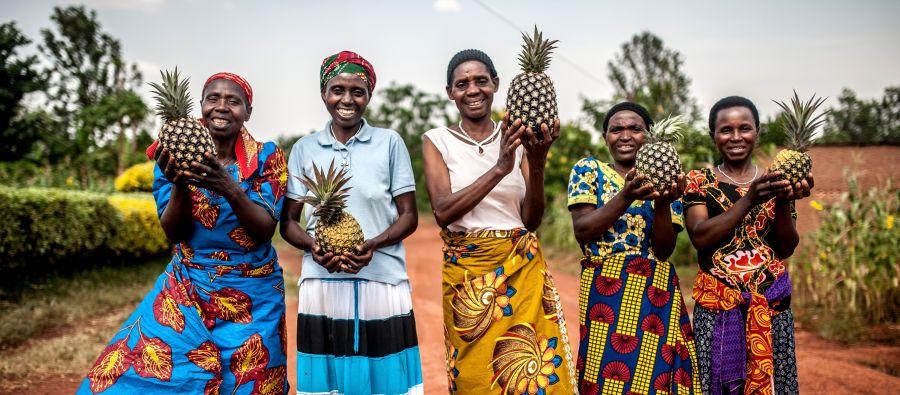Liberia’s agriculture sector employs 60% of the country’s population; with women making up 50% of the workforce.
Over the decades, women in Liberia have been key players in the production, processing and marketing of vegetables and other crops.
The good
Women do not just grow crops with peculiar tastes, they grow vegetables that provide consumers with countless health benefits.
Vegetables, regardless of type, provide minerals, protein, vitamins A, B, C and also serve as acid neutralizers in the human body. Moreover, they promote digestion, lower our susceptibility to infections and also prevent constipation.
The challenge
The women who mostly grow these vegetables are down the pecking order of importance when compared to their male counterparts.
Marther Carter, member of the Kpondeh Town’s Farmers Group, Lower Careysburg said that most women farmers in rural communities like her group are still farming at a subsistence level despite what she termed as “big show of agriculture programs for rural women.”
Also joint efforts to liberate women farmers from the constraints of such a reality have over the years attracted millions of dollars, but that immediate impact seems to be strangled by dubious acts, with targeted beneficiaries expressing frustration.
Women farmers from the Omega Community, a suburb community in Paynesville, expressed their frustration about being marginalized.
Korpou Zayzay, a mother of three, disclosed that she and other farmers in the community have been let down by several organizations that assured them of help.
“Many times people come here saying that they are organizations helping farmers; they will take our pictures and ask us about problems we are facing. They will make good promises but in the end they will not come back to us,” Madam Zayzay narrated. “If we are the ones that they want to make their money from, this time around it will not work. We have decided not to talk to anyone that will come here; we will work to get the things that we need, even if it will cost us a thousand years.”
Game changer
Providing only finance for women farmers is not the best strategy to free them from their conditions. Concerns surrounding the building of women’s capacity through a series of training is among ideas strategists are bringing to the drawing board to assist women farmers.
Although when speaking on the prosperity of women in agribusiness at the 2017 African Green Revolution Forum (AGRF) in Abidjan, Ivory Coast, the Senior Program Officer of the International Development Research Center (IDRC), Dr. Jemimah Njuki, disclosed that African women farmers thrive when given financial aid alone; however, Dr. Njuki, who holds a PhD in Rural Development and is also editor in chief of the Journal of Gender, Agriculture and Food Security, added that access to finance, capacity building programs, mentorship and links to markets are vital for the success of women-led agribusinesses.
She stressed that the four points – if implemented – must be provided as a package.

